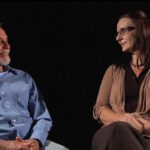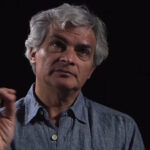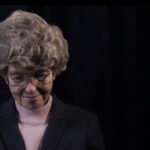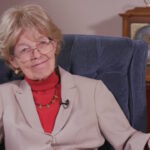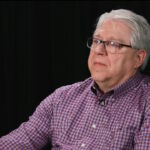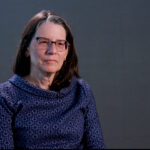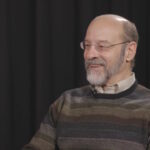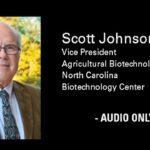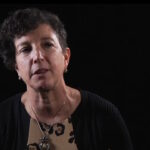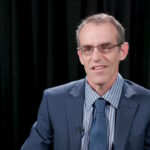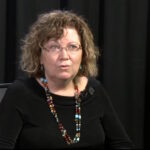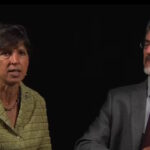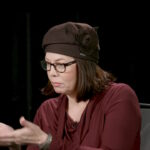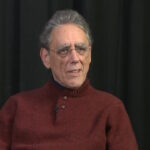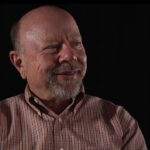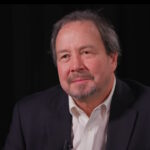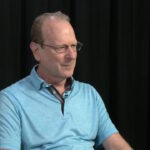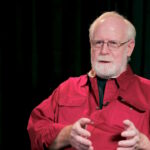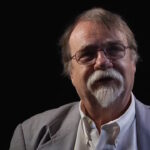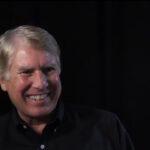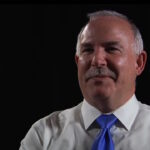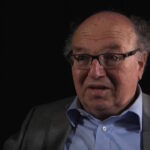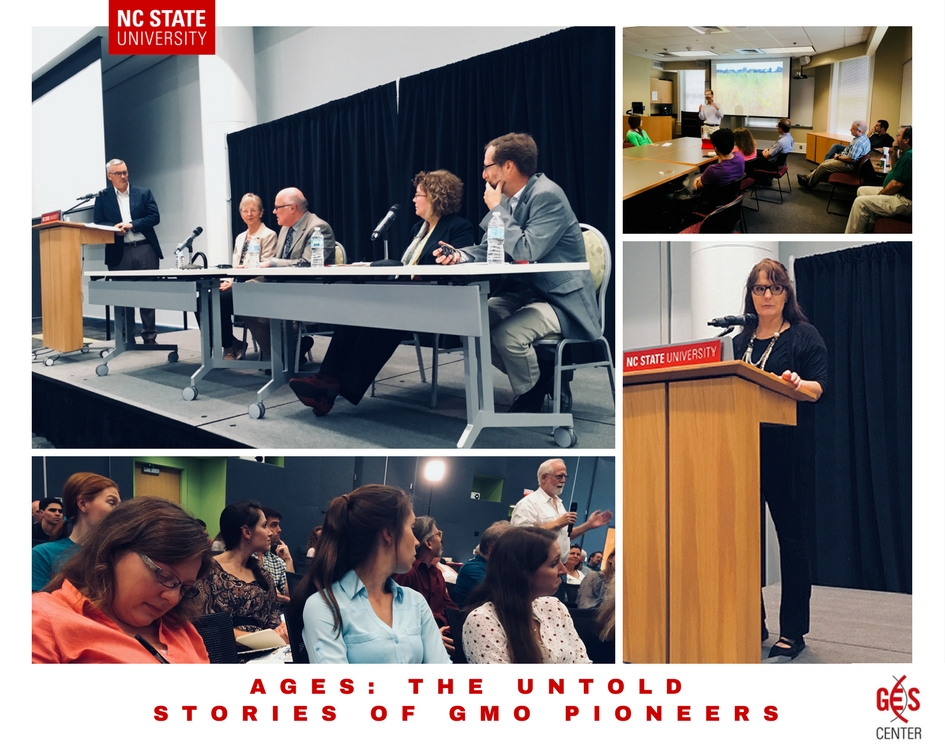Collecting a History of Agricultural Genetic Engineering and Society
Genetic engineering is at an important crossroads. The first generation of researchers and regulators are in many cases still actively working. But the clock is ticking to capture the memories and papers of these pioneering practitioners while they are still willing and able to share. At the same time, a second and third generation of scientists, regulators, marketers, students, and advocates for and against the technology are now active and interested in that history.
In the absence of archives, observers create their own stories unhindered by fact. Gathering original words and memories is a matter of urgency. The GES Center at NC State has brought together the first generation of genetic engineering practitioners and to archive its story for posterity.
Since 2014, we have invited major figures in the scientific, regulatory and advocacy communities shaping genetic engineering to NC State for public talks. In addition to key scientists, we have also included a wide diversity of people in the genetic engineering community, including basic scientists, biotech developers, regulators, policy makers, NGO workers, social scientists, and industry leaders.
Oral History Videos
INTERVIEWEE PROFILES
Jump to: Jennifer Kuzma and Fred Gould | Ignacio Chapela | Mary-Dell Chilton | Greg Jaffe | Scott Johnson | Pam Marrone | Terry Medley | Margaret Mellon | Pamela Ronald and Raoul Adamchak | John Ryals | Scott Shore | Glenn Davis-Stone | Paul Thompson | David Zilberman
Jennifer Kuzma and Fred Gould
Co-Directors and Distinguished Professors, Genetic Engineering & Society Center, NC State University
Interview date: 5/20/2014
Download: Interview transcript
Related Videos:
- Jennifer Kuzma – Roadmap to Gene Drives Workshop, 3/29/2016
- Jennifer Kuzma and Sheron King – Delphi Study, 1/14/2015 Colloquium
- Jennifer Kuzma, Laura Severin, and Mary Wyer – Diversity and Gender Issues, 2/11/2014 Colloquium
- Jennifer Kuzma, Jason Delborne, and Mark Robinson – GES Cluster Hire Faculty Intros, 10/8/2013 & 10/23 Colloquia
- Fred Gould and Jason Delborne – National Research Council Reports on Genetic Engineering , 9/6/2016 Colloquium
- Fred Gould – History of IGERT, 1/14/2014 Colloquium
- Fred Gould and students – Peru Summer Course Student Presentations, 10/23/2012 Colloquium
About:
Dr. Jennifer Kuzma is the Goodnight-NCGSK Foundation Distinguished Professor in the School of Public and International Affairs, and co-director of the Genetic Engineering and Society Center, at NC State University. Prior to this, she was associate professor of science and technology policy at the University of Minnesota (2003-2013); study director at the U.S. National Academies of Science (NAS) (1999-2003); and an AAAS Risk Policy Fellow at the USDA (1997-1999). She has over 100 scholarly publications on emerging technologies and governance and has been studying this area for over 25 years. Kuzma currently serves on several national and international advisory boards, including the World Economic Forum’s Global Futures Council on Technology, Values, and Policy and the U.S. National Academy of Sciences Committee on Preparing for Future Biotechnology.
Dr. Fred Gould, co-director of the Center, is a University Distinguished Professor of Entomology who has done cutting-edge research in the area of ecology and evolutionary biology. An elected member of the National Academy of Sciences, Gould studies the ecology and genetics of insect pests to improve food production and human and environmental health.
Ignacio Chapela
Professor, University of California, Berkeley
Interview date: 2/23/2015
Download: Interview transcript
Related:
- Video: Understanding the Other, 3/3/2015 Colloquium
- Publication: La Jornada: Miel y transgénicos, ¿la imposible coexistencia?
About:
Ignacio Chapela is a microbial ecologist and mycologist at the University of California, Berkeley. He is best known for a 2001 paper in Nature on the flow of transgenes into wild maize populations and as an outspoken critic of the University of California’s ties to the biotechnology industry. Chapela is also notable for his work with natural resources and indigenous rights.
Mary-Dell Chilton
Scientist, Inventor, Syngenta Biotechnology
Interview date: 2/17/2016
Download: Interview transcript
About:
Mary-Dell Chilton, a Distinguished Science Fellow at Syngenta began her corporate career in 1983 with CIBA-Geigy Corporation (a legacy company of Syngenta). Her tenure has spanned both research and administrative roles, including Vice President, Agricultural Biotechnology. Her current research is directed to improving the technology for introducing new genes into plants. Dr. Chilton is author of more than 100 scientific publications.
Greg Jaffe
Biotechnology Director, Center for Science in the Public Interest
Interview date: 10/5/2015
Download: Interview transcript
Related Video:
- Busting the Myths of Genetically Engineered Foods* – Colloquium video unavailable, however Jaffe gave a similar presentation in October 2014 at The George Washington University
About:
Gregory Jaffe is the Director of the Project on Biotechnology for CSPI. Jaffe came to CSPI after serving as a Trial Attorney for the U.S. Department of Justice’s Environmental and Natural Resources Division and as Senior Counsel with the U.S. EPA, Air Enforcement Division. He is a recognized international expert on agricultural biotechnology and biosafety, and has published numerous articles and reports on those topics.
Scott Johnson
Vice President, Agricultural Biotechnology, NC Biotechnology Center
Interview date: 8/30/2016
Download: Interview transcript
Related Video:
- A California Convert in King Fraley’s Court, 8/30/2016 Colloquium
About:
Mr. Johnson leads NCBiotech’s initiatives focused on agriculture, which have created an internationally recognized portal for high-tech agricultural R&D and commerce in North Carolina. Before joining NCBiotech in November 2014, he spent six years as president of Sustainable Oils, a privately held biofuel and biochemical feedstock provider developing novel crops and solutions for the renewable replacement of petroleum products. Under his leadership, the company delivered more than one million gallons of camelina-based jet fuel to the U.S. military in a strategic effort to source alternative fuel sources.
Pam Marrone
CEO & Founder, Marrone Bio Innovations
Interview date: 10/26/2015
Download:Interview transcript
Related Video:
- Biological vs Genetic Engineering Approaches to Pest Management, 10/27/2015 Colloquium
About:
Dr. Pamela Marrone, CEO and founder of Marrone Bio Innovations (MBI), started the company in 2006 to discover and develop effective and environmentally responsible, biologically-based products for pest management and plant health. Prior to establishing MBI, Dr. Marrone founded AgraQuest (1995-2006) where she served as its CEO, Chairman and President. Before AgraQuest, she was founding president of Entotech, Inc. (1990-1995), a biopesticide subsidiary of Novo Nordisk. Pam started her career in biopesticides by leading the Insect Biology group at Monsanto (1983-1990), which was involved in pioneering projects based on natural products and plant biotechnology.
Terry Medley
Vice President for Biotechnology Regulatory and External Affairs (Retired), DuPont Company
Interview date: 9/20/2016
Download: Interview transcript
Related Video:
- Regulation of the Products of Genetic Engineering, 9/20/2016 Colloquium
About:
Terry Medley joined DuPont in 1998, as director of regulatory and external affairs. Before joining DuPont, Mr. Medley was administrator of USDA’s Animal and Plant Health Inspection Service. As administrator, Medley led a staff of 6,000 charged with protecting the health of U.S. plant and animal resources. He is recognized internationally for his expertise and has received numerous awards for public service.
Margaret Mellon
Senior Scientist, Policy Expert, Union of Concerned Scientists
Interview date: 9/5/2014
Download: Interview transcript
About:
Margaret Mellon is one of the nation’s most respected experts on biotechnology and food safety. Mellon holds a doctorate in molecular biology and a law degree from the University of Virginia. She was formerly a research fellow in molecular virology at Purdue University and Program Director for the Environmental Law Institute.
Pamela Ronald and Raoul Adamchak
Professor, University of California Davis; Market Garden Coordinator, UC Davis Student Garden
Interview date: 8/20/2014
Download: Interview transcript
About:
Pamela C. Ronald is a plant pathologist and geneticist. She is a professor in the Genome Center and the Department of Plant Pathology, and founding faculty director of the Institute for Food and Agricultural Literacy, all at the UC Davis. She also serves as Director of Grass Genetics at the Joint BioEnergy Institute in Emeryville, CA.
Raoul Adamchak manages the 7-acre, certified organic, Market Garden at the UC Davis Student Farm. His two main responsibilities are crop production and the development and implementation of experiential learning opportunities for lead student farmers, interns, PLS 49 students, volunteers, and apprentices. Raoul has been growing vegetables organically for over 25 years and has a M.S. in International Agricultural Development from UC Davis.
About:
Dr. Ryals has served as President, CEO and a member of the board of directors at Metabolon since April 2002. Prior to founding Metabolon, he was Chief Executive Officer, President and founder of Paradigm Genetics, Inc., a publicly traded agricultural biotechnology company focused on industrializing the process of gene function discovery.
Scott Shore
Consultant, Shore Biotechnology Consulting; Adjunct Professor, NC State University
Interview date: 2/21/2017
Download: Interview transcript
Related Video:
- Biotechnology Capacity Building: Context, Choices, Challenges, Checks and Champions, 2/21/2017 Colloquium
About:
Scott Shore has twenty years US and international experience in government and industrial regulatory affairs with emphasis on biotechnology products and policy. He currently works as an independent regulatory consultant as part of the Biosafety Resource Network supporting the Bill and Melinda Gates Foundation funded projects for the development of nutritionally improved crops. He also is working with commercial and government clients on other agricultural and industrial biotechnology regulatory projects.
Glenn Davis Stone
Professor, Washington University, St. Louis
Interview date:: 1/24/2017
Download: Interview transcript
Related Video:
- The Wisdom of the Farmer: Insights from a 16-year study of GM Cotton in India, 1/24/2017 Colloquium
About:
Glenn Davis Stone is an environmental anthropologist whose research focuses on ecological, political, and cultural aspects of agriculture; on crop biotechnology; and on science studies and food studies. He is a Guggenheim Fellow for 2016-17.
Paul Thompson
Professor, Michigan State University
Interview date: 10/14/2015
Download: Interview transcript
Related Video:
- Reading Seralini, 10/13/2015 Colloquium
About:
Dr. Paul Thompson arrived at Michigan State University in 2003 to assume tenure track positions in the Philosophy Department, with partial appointments in the Agricultural, Food, and Resource Economics, and Community Sustainability Departments. He also became the W.K. Kellogg Chair in Agricultural Food, and Community Ethics at MSU.
David Zilberman
Professor, University of California, Berkeley
Interview date: 4/10/2017
Download: Interview transcript
About:
Professor (Robinson Chair) in the Dept of Agricultural and Resource Economics at U.C. Berkeley. David’s areas of expertise include agricultural and environmental policy, the economics of innovation, risk and marketing, and water, pest control; biotechnology and climate change.
About the Archive
Project Personnel
- Dr. Jennifer Kuzma, CoPI – Goodnight-NC GSK Foundation Distinguished Professor & Co-Director, GES Center
- Dr. Matthew Booker, CoPI – Associate Professor of History
- Eleanor Brown, CoPI – Head, Special Collections Research Center, NCSU Libraries
- Virginia Ferris, CoPI – Outreach and Engagement Program Librarian, NCSU Libraries
- Brad Herring, CoPI – Videographer
- Dr. Fred Gould – University Distinguished Professor of Entomology & Co-Director, GES Center
- Dr. Todd Kuiken – Sr. Research Scholar, GES Center
- Nic Beery – Videographer
- Sharon Stauffer – Program Associate, GES Center
- Patti Mulligan – Communications Director, GES Center
Our Goals
- To encourage public access to the history of genetic engineering’s ideas, practice and impact by posting longer-form video interviews on a website.
- To create and preserve an archive of high-quality oral histories with key figures in the field, to be archived in North Carolina State University Libraries Special Collections unit.
Our Partners
The NCSU Libraries is a key partner. They will archive physical materials and have experience recording, editing and storing audio video interviews. They have a proven track record of gathering and storing historical materials for public access, including two models for our project: The Computer Simulation collection (video archive) the Lewis Clarke collection (oral history and documents archive).
The NC State Department of History is our other key partner. Matthew Booker, Assoc. Professor of History, has played an instrumental role in this project, acting as primary interviewer on almost all of the interviews.
To expand the archive, we are actively seeking partners with an interest in our publicly-accessible archive of voices from the communities who shaped genetic engineering in agriculture. Please contact Jennifer Kuzma, Co-director of the GES Center, at jkuzma@ncsu.edu for more information.
Public Tools
PAST: Fall 2015 History Project Series Speakers
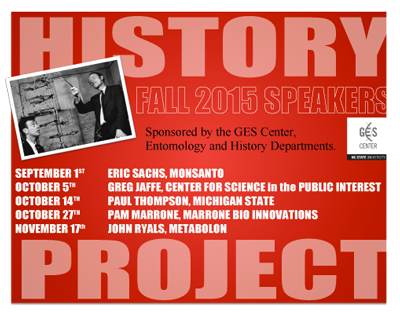
Eric Sachs: Monsanto (9/1/15) Download PDF
Greg Jaffe: Center for Science in the Public Interest. (10/5/15) Download PDF
Paul Thompson: Michigan State University (10/14/15) Download PDF
Pam Marrone: Marrone Bio Innovations (10/27/15) Download PDF
John Ryals: Metabolon (11/17/15) Download PDF
